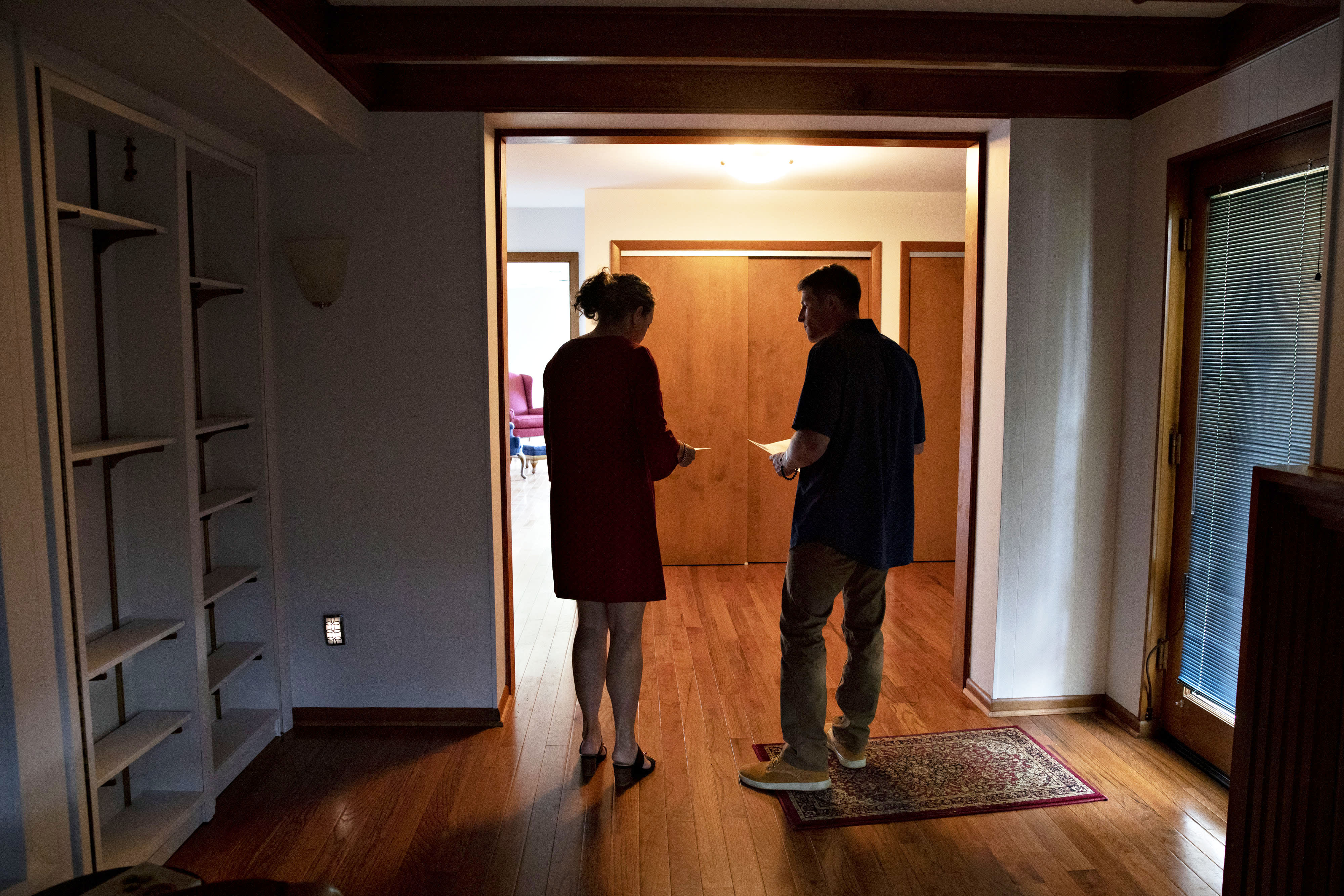When Diane Pearson’s sons both attended Robert Morris University, buying a condo for them in the suburb of Pittsburgh made financial sense.
Pearson, who is a certified financial planner, took out a home equity line of credit to purchase the property with cash in 2013.
Three years later, the family sold it at a $5,000 profit. Factoring in the savings on dorm room fees, “in the end we probably saved $40,000,” she said.
“I have been recommending this process for years,” she added.
Diane Pearson with her husband Alex and sons David and Alex.
Source: Diane Pearson
Before the coronavirus crisis sent shockwaves through the economy, it was increasingly common for parents to buy properties, or “kiddie condos,” as an alternative to paying for student housing.
In a number of cities across the U.S., it was more cost effective to purchase a home rather than rent a room on campus.
Average room and board costs jumped roughly 20% over the last decade to $12,990 at private four-year private colleges during the 2019-2020 school year, according to The College Board. Public colleges are only slightly less — $11,510 in 2019-2020.
Meanwhile, record low mortgage rates and built-in demand from incoming students every year has boosted the market for college-ready condos.
There’s an added incentive to owning property during a public health crisis, which gives students a socially distanced place to live, away from crowded dorms.
Plus, it can provide additional income if you choose to take on roommates or rent the property to other students even after graduation.
Many parents, like Pearson, are even able to turn a modest profit when they sell, after accounting for closing costs and other expenses.
As an investment, however, it’s far from a sure thing.
More from Invest in You:
Need money? Find cash in these unexpected places
Six strategies to help recent college grads find work right now
Look at every dollar as an addition to your emergency fund
When Malcolm Ethridge was an undergraduate at North Carolina A&T, he bought a house in his college town of Greensboro.
“I was a rising junior in college and was looking to qualify for in-state tuition; which I did,” he said.
By becoming an in-state resident, Ethridge was able to lower his tuition bill substantially. At public colleges, in-state tuition can be a fraction of the price, although the requirements to qualify for residency vary by state.
Further, the monthly payments on his $100,000 home were roughly $750, only slightly more than the $600 in rent he had been paying.
However, by graduation, near the height of the Great Recession, economic conditions had changed and Ethridge had a house he could not sell.
“I closed on the property in September 2007, which unbeknownst to me, was at the height of the housing market at that time,” he said.
“The market crash that came the next year turned me into a landlord against my will.”
As a junior in 2007, Malcolm Ethridge bought a house in his college town of Greensboro, NC. When the market sank, he was unable to sell the property.
Photo: Malcolm Ethridge
Ethridge hired a property manager and continued to carry the mortgage along with “all of the headaches that came with being a landlord” for another eight years, he said.
Finally, in 2018, he sold the house for $98,000.
Now a certified financial planner and executive vice president of CIC Wealth Management based in Rockville, Maryland, Ethridge cautions clients to consider this type of investment carefully.
For families who still don’t know whether college will be in-person in the fall, buying real estate right now is risky, according to Scott McLeod, a certified financial planner and president and CEO of Brown Financial Advisory in Fairhope Alabama.
In addition, purchasing a property that you intend to hold for four years or less could be particularly problematic during tumultuous times.
“The outlook for the economy is just fuzzy right now,” said McLeod, who is also the father of a college junior.
“Even in a good economy, you have to make sure you have adequate liquidity because of the uncertainty,” he added. “This is still a house and things break.”
Costs aside, living on campus has other important benefits, according to Mary DeNiro, the CEO of the Association of College & University Housing Officers International.
There are supports in place “which help students find belonging with their peers and the broader campus community,” she said.
In fact, data shows that undergrads who live on campus are more likely to stay enrolled and complete their degree.
“This is why most four-year institutions have a live-on requirement for first year students and many have added live-on requirements for sophomores,” DeNiro said.
Living on campus enhances the students’ experience, added Pam Schreiber, executive director of housing and food services at the University of Washington.
“As I like to say, it’s not just an accommodations business.”
SIGN UP: Money 101 is an 8-week learning course to financial freedom, delivered weekly to your inbox.
CHECK OUT: This single mom made $126,000 in a year from an online caramel-apple making course via Grow with Acorns+CNBC.
Disclosure: NBCUniversal and Comcast Ventures are investors in Acorns.
